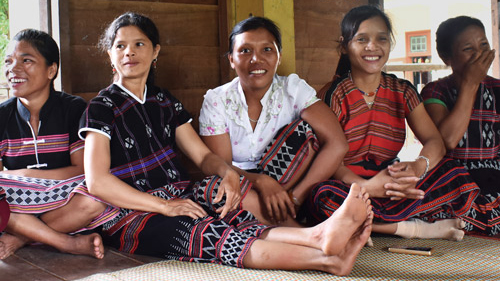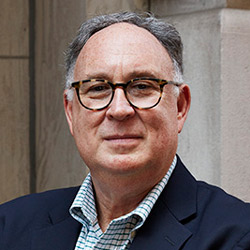As this pandemic continues to spread around the globe, you can expect to read more news about its devastating impact in poor countries. In normal times, people can face malnutrition, poor water and sanitation systems, lack of access to reliable medical help, and governments that are ill equipped to manage a crisis. Concepts like social distancing are uncommon in cultures where strong community bonds are one of the ways that people survive. Fragile economies, especially in the rural areas where Trickle Up works, suffer.
As we have been for 41 years, Trickle Up is there to help the poorest and most marginalized families. Building on the trusted relationships we have with tens of thousands of families and dozens of local partners, we are mobilizing on two fronts: public health and economic recovery.
Public health – leave no one behind
You probably know Trickle Up for our work helping women start businesses, save for the future, and gain skills and confidence that can last a lifetime. What you may not know is that many of our programs also help teach good health and nutrition practices and connect our participants with government support programs.
Trickle Up is ready to help people now, as they face the spread of COVID-19 in their communities. Drawing upon our many years of teaching handwashing techniques, we are disseminating handwashing and safe hygiene messages to households, including videos and other information through our digital tools. The backyard gardens that we’ve helped thousands of families plant as a source for nutrient-rich food are more important than ever.
Wherever possible, we will work with Trickle Up savings groups to address the health and economic impacts of this crisis. Our local partners seek to monitor the impact of this crisis at the village level, to help ensure that government public health and relief programs include their poorest citizens. We are also dispelling dangerous myths about coronavirus transmission, which can stigmatize and exclude the people we serve.
Economic recovery – the path forward
As we all are seeing here in the United States, the economic consequences of the COVID-19 pandemic will be profound in low-income countries – even more so in the rural communities where Trickle Up works. The businesses that Trickle Up participants have established with our help are at risk, families have to draw upon their savings for food and other necessities, and some are forced to sell the productive assets – made possible by Trickle Up seed capital grants – that are the backbone of their businesses. Local markets are shut down in order to prevent the spread of the coronavirus.
We are now developing the means to help current and former Trickle Up participants get back on their feet once the crisis has peaked. Resilience – the ability to anticipate setbacks and be ready with the skills and strategies needed to mitigate negative consequences – has always been part of what Trickle Up teaches. Now we are adding “recovery” to our lexicon.
For the thousands of families that Trickle Up has helped escape extreme poverty, the current threat is clear: The coronavirus pandemic could force them back down to their pre-Trickle Up poverty level. We are determined not to let that happen. Our most important work is yet to come.
We bring four decades of global experience to that challenge. Our global team has the necessary drive, talent, and trusted community relationships. Our participants are resilient. Your loyal support and confidence provides us with the fuel we need to weather this storm and come out stronger on the other side.



